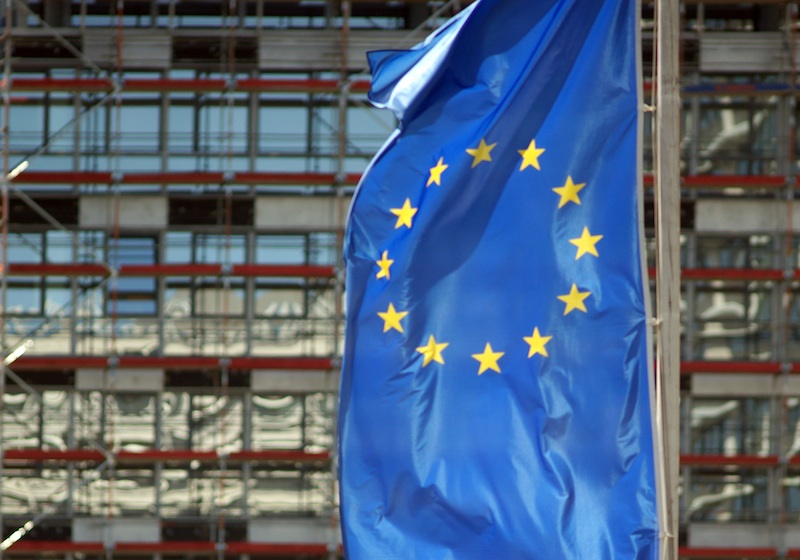BRUSSELS (AP) — Economic growth across the eurozone was stronger than expected at the end of 2013, according to official figures released Friday, raising hopes the recovery is gaining a foothold.
Gross domestic product grew by 0.3 percent in the October-December period from the previous quarter, said Eurostat, the European Union’s statistics office. That amounts to an annualized rate of about 1.2 percent.
In the third quarter, growth was only 0.1 percent across the bloc, which counted 17 members before Latvia joined this year.
“While still far from dynamic, it is a step back in the right direction,” said analyst Howard Archer of IHS Global Insight.
The eurozone’s recovery is important to the world economy as Europeans are big buyers of goods from the United States and Asia. Uncertainty over the bloc’s financial future in recent years weighed on global growth.
The eurozone came out of recession at the beginning of 2013 as it started emerging from a five-year financial crisis, but continues to suffer from high unemployment of 12 percent. A strong euro is still hurting its exporters and governments are more focused on cutting debt than investing.
The fourth quarter growth — the third consecutive quarter of expansion — beat analysts’ expectations for a rate of 0.2 percent and eases some of the pressure on the European Central Bank to loosen its monetary policy further. Some analysts, however, still think the ECB to take action in coming months to keep inflation from falling further below its target.
The growth uptick was largely driven by higher than expected activity in the bloc’s biggest economies, namely Germany, France and Italy.
Analyst Chris Williamson of Markit said the figures added to recent data showing “the eurozone’s recovery has moved up a gear.”
Italy’s quarterly growth rate of 0.1 percent marked the country’s first positive growth result since 2011. The stock market in Milan opened higher on the news, even though the country’s Prime Minister, Enrico Letta, resigned yesterday.
Germany’s economy grew by 0.4 percent in the fourth quarter, while France’s saw an uptick of 0.3 percent.
Growth in the Netherlands was a strong 0.7 percent, and the economies in crisis-hit countries like Spain and Portugal also showed new signs of life, growing by 0.3 percent and 0.4 percent.
“Not only has the pace of growth picked up to the fastest since the second quarter of 2011, but the recovery is also becoming more broad-based, encompassing core and so-called ‘periphery’ countries alike,” said Markit’s Williamson.
The figures also showed the economy of the wider 28-nation EU, which includes members like Britain that don’t use the euro, grew by 0.4 percent compared with the previous quarter.
For the whole of 2013, the figures showed the recovery was still at an early stage. The eurozone’s GDP fell 0.4 percent, while the EU’s inched up 0.1 percent.
___
Follow Juergen Baetz on Twitter at http://www.twitter.com/jbaetz






